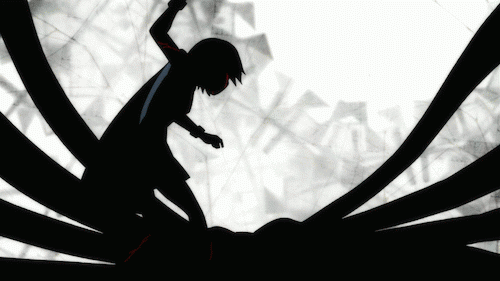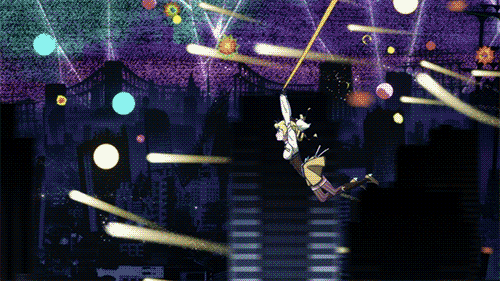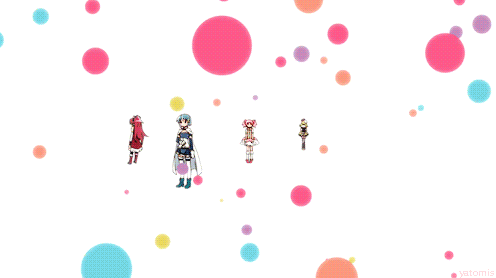When’s the last time you watched or read a good tragedy? If
you’re most people, its probably been awhile. After all, tragedies are kind of
a bummer and can tug your heart strings in all the worst ways. Most story
tellers aim for dramas or comedies instead for their more hopeful endings. And even
when a show or book goes for tragedy, often it isn’t very good. It feels
emotionally manipulative when a character is killed at the end just to get a
sad, tear jerker finale. Simply put its hard to earn that tragic conclusion in a way that makes the story feel satisfying. But when it works, it works.
In a lot of ways, tragedies are kind of a lost art. When you
hear the word tragedy, you probably think of the ancient Greeks or one of
Shakespeare’s great plays. Good modern tragedies are far more rare because they
are so hard to pull off. But today I want to take a look at two anime that
understand the art of tragedy. And they both come from the mind of the same
man- Gen Urobuchi.
Nicknamed the Urobutcher for the fates of many of his
characters, Urobuchi, is one of the greats in the anime industry. He’s a
masterful storyteller, having a talent for really getting his audience
emotionally invested in the fates of the characters.
In one of his works, Fate/Zero, magicians fight for the
right to the Holy Grail through the use of heroes from all historic ages. Most
of the audience goes into the story knowing it will end in tragedy (as it is a
prequel). But none the less, its impossible not to get invested. The characters
are likable and they have goals they hope to achieve with the
power of grail. But they also have damning flaws such as arrogance, stubbornness,
or naivety that ultimately will keep them from their dreams (or lives).
In Madoka Magica, an anime that explores the Magical Girl
genre (think Sailor Moon), young girls make contracts to gain powers and fight
witches in exchange for the granting of one wish, any wish at all. But the
venture of being a magical girl may not be so glamorous as it appears and every
wish comes at a hidden cost.

Both of these anime’s have a similar element that proves
Urobuchi really understand tragedies--wishes. A great tragic hero is ultimately
driven by something important to them. Maybe its even a goal to which we relate like
the desire to help a close friend, make amends or even to simply survive. However, in a tragedy, the hero ultimately fails to
grasp this goal because they have a damning flaw that will keep them from a
happy ending. Maybe they go about getting their wish the wrong way, at the
expense of others, or don’t think of the consequences. Hamlet spends too much
time thinking about the path to revenge and more people die because of it.
Othello acts too quickly on jealousy and kills his love. Romeo and Juliet are
surrounded by a society that curses their love and they die because of it (or
because they needed communicate the plan better).

Madoka Magica is the best example of this idea simply
because each of the girls make a distinct wish that ultimately determines their
fate. It’s not predictable by any means, but it does follow story telling 101-
set up and pay off. The beginning leads to the middle leads to the end, and it all flows seamlessly together. Its one of my personal favorite anime for just
that reason because its just one of the best written things I’ve ever watched.
 |
| And its gorgeous |
In all of these tragedies, the flaw is built in from the
beginning. From the moment the hero sets out on their journey, we get the
feeling they may falter. They may not lose everything. They may not even die. Maybe
they’ll even get some semblance of a happy ending. But there will be losses and
they will feel earned. It won’t just be for a tug on the emotional heart
strings. Really good tragic endings feel necessary. Almost inevitable. And it
is in that kind of tragedy that we find as much satisfaction as we would in a
happy ending.
Madoka Magica and Fate/Zero are two stellar examples of
modern tragedies, both with bitter sweet endings. They make you root for the
characters despite the dark path they walk, and they make you cry when
everything comes crashing down. But you don’t feel cheated. You don’t feel
manipulated. You feel good, ultimately, because you’ve got to love a well told
story. So if you feel like consuming a great modern tragedy in the near future, check either of these works out!




